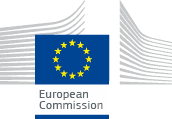EEA Review Tool
The EMRT is a web-based tool hosted by the EEA to facilitate quality checks and reviews of national emission inventories reported by EU Member States, Iceland, and Norway. Rules and procedures for reporting of greenhouse gas emission inventories and conducting a Union expert review are laid down in the EU Governance Regulation.
The EMRT was developed in 2014 under a service contract commissioned by DG Climate Action in order to streamline the procedure of recording review findings and communicating questions to countries and replies back to the review team. From 2015 onwards the tool is used in the annual review process under the Effort Sharing Decision (ESD) and the ‘initial quality checks’ under the EU GHG inventory compilation. In 2025, the tool will also be used to facilitate both the initial quality checks, as well as the comprehensive review under the Effort Sharing Regulation (ESR) and LULUCF Regulation.
- Click 'Log in' in the top right corner of the screen.
- If requested, enter your EIONET username and password.
- Click '2025' to start the review.
Key dates for initial quality checks 2025
| Commission / EEA review secretariat | EU team (initial checks) | Member States action |
|
15/1–27/2 EU team QA/QC checks (Art. 291), compiles questions to MS |
15/1 MS submission to EU |
|
|
28/2 EEA communicates final draft EU GHG inventory report to MS |
By 28/2 Quality experts (QA experts) send questions to MS |
28/2-15/3 MS provide responses to questions |
|
15/3-31/3 EU team follows up on MS replies |
15/3 MS submission to EU |
|
|
|
15/3-31/3 EU team prepares estimates for data missing from the national inventory (Gap-filling) |
|
|
|
By 31/3 QA experts send follow up questions to MS |
30/3–7/4 MS provide responses to follow up questions |
Key dates for the Comprehensive Review 2025
|
Commission / EEA review secretariat |
EU team (Comprehensive Review) |
Member States action |
|
|
15/4 – 25/4 Preparation of review material for the comprehensive inventory reviews |
|
|
|
25/4 – 13/5 Desk-based review and communication of questions to Member States |
13/5 – 27/5 Response to desk-review questions |
|
|
2/6 – 6/6 Centralised review and communication of additional questions to Member States |
2/6 – 6/6 Response to additional questions and potential technical corrections |
|
9/6 Communication of draft technical corrections |
By 21/6 Response to draft technical corrections |
|
|
|
29/6 – 9/8 Potential in-country visit |
|
|
27/6 Communication of draft review reports to Member States |
|
8/8 Comments to draft review reports |
|
|
26/8 Finalisation of review reports |
|
|
28/8 Submission of Final Review Reports |
|

